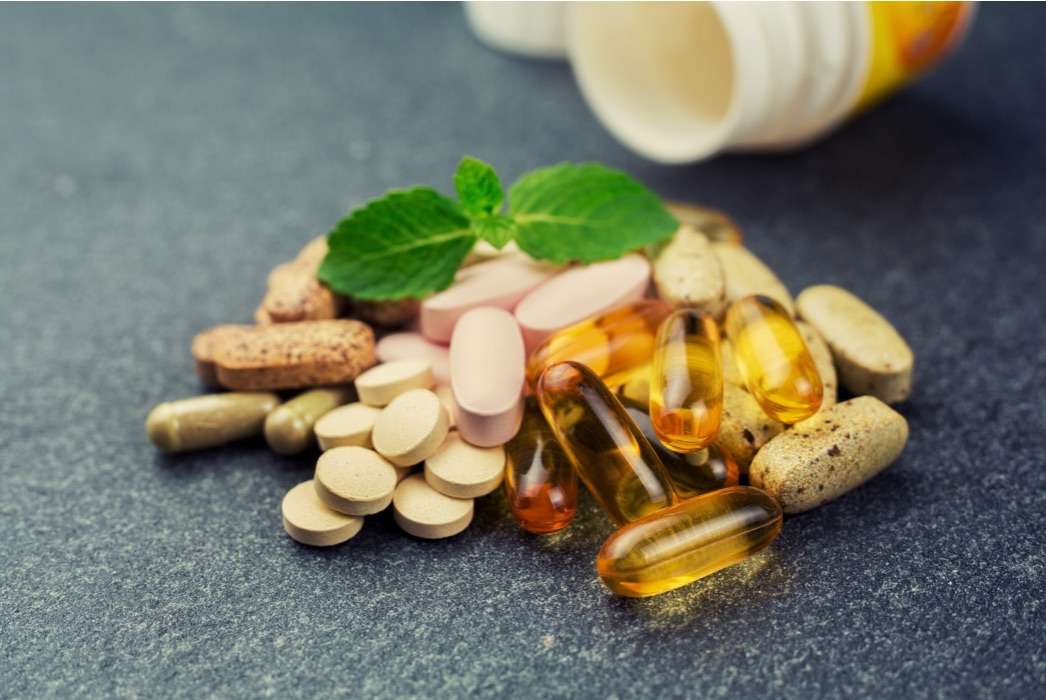We have a global epidemic of sub optimal vitamin D levels with approximately1 billion people in the world with low vitamin D levels. The importance of this cannot be over emphasised, especially given the ongoing public health crisis with Covid 19. Vitamin D is one of the most important vitamins for preventing disease and maintaining health because it links so powerfully with the human immune system. There are now countless studies linking vitamin D deficiency to poor outcomes with Covid and the first Randomised Control Trial using Vitamin D as a therapy for severe Covid pneumonia showed immense effect.
Your immune system is like your internal army. It is your first line of defence for invading pathogens, viruses, bacteria and toxins. An effective immune system protects us all illness and disease. You don’t want a flaccid immune system and neither do you want a revved up one.
Immunity is all about balance and is about your body knowing when to put up a good flight and when to stay calm. Vitamin D helps keep your immunity in balance. We now know that Vitamin D can significantly modulate the innate and adaptive immune responses with immune cells capable of synthesizing and responding to vitamin D. What this means is that you do not want to have low levels of vitamin D this winter if you have both Influenza and Covid to dodge.
Who Needs Vitamin D?
So why do we have a huge percentage of the modern population deficient in vitamin D? Partly it is due to the seasons and to lack of sun exposure in colder climates. Partly it is to do with the modern habit of spending vast amounts of time indoors. And partly it is to do with our behaviours such as applying sunscreen and avoiding the sun. Increasing global obesity rates also make matters worse when it comes to Vitamin D optimisation because the higher your BMI the more Vitamin D you need.
The Journal Of the American Medical Association recently conducted a study that showed that 42% of the US population was Vitamin D deficient.(JAMA sept 2020) These level increased significantly in the hispanic, black and asian populations. Vitamin D is the sunshine vitamin. We call it this because over 90% of our natural vitamin D production happens when we expose ourselves to the suns rays, more specifically to UVB rays. If you wear sunscreen all the time, avoid the sun or work indoors your natural Vitamin D production will decline. If you live in the Northern hemisphere and endure long cold winters, then you will also miss out on getting enough vitamin D so be sure to supplement during the long winter months.
Even countries like Australia and the Middle East are experiencing profound vitamin D deficiencies in their populations because of sun avoidance practices and the application of daily sunscreen.
What a paradox!
Adequate sunshine and supplementing vitamin D are cheap and effective ways to boost Vitamin D levels. This gives a powerful boost to the body’s innate immune system that protects you against bacteria, viruses, pathogens and disease. It’s easy to check your vitamin D levels with a simple blood test through your Doctor. And if natural sunlight isn’t available its easy to correct a deficiency with supplements. Your Doctor can test your levels and suggest a supplement regime or you can also buy vitamin D supplements over the counter. I recommend that all of my patients supplement vitamin D with a D3 supplement as this is the most bioactive form of Vitamin D and I recommend that they all supplement throughout the winter months at the minimum. I personally take Vitamin D3 as a supplement all year around because I live in the UK and don’t get enough consistent sun exposure.
Dosage:
Research suggests that a daily Vitamin D dose is better than a weekly dose. This is because a daily dose best mimics the natural daily dose of sunshine that humans biologically evolved with. I recommend that all my patients take a daily dose between 2000-4000iu of D3 with their first meal of the day. Vitamin D is fat soluble so its best taken with a meal for maximum absorption. Be warned, if you take vitamin D at night time it might keep you awake!
Covid:
The first RCT on Vitamin D and Covid was published in August 29 2020. The study came from the Reina Sofia University Hospital in Spain. (‘Therapy Versus Best Available Therapy on Intensive Care Unit Admission and Mortality Among Patients Hospitalised for Covid 19: A Pilot Randomised Clinical Study’, Journal of Steroid, Biochemistry and Molecular Biology). The study looked at two groups of patients all of whom were diagnosed with acute respiratory disease due to Covid 19 and were admitted to hospital. They all had Covid positive blood tests and Xray changes in keeping with viral pneumonia. The 76 study participants were split into two groups - 50 people were put on to a standard hospital Covid treatment of Hydroxychloroquine and Azithromycin plus oral vitamin D and the other group of 26 received just Hydroxychloroquine and Azithromycin. The group that received Vitamin D treatment received it in its active form of Calcifediol which has very fast action in the body. They received their dose orally. Of the 50 patients treated with additional Vitamin D only 2% ended up in ITU and there were no deaths in this group. In the other group of 26 patients 50% ended up in ITU and 2 patients died. This data is significant and the study’s conclusion was that treatment with Vitamin D significantly reduces the severity of Covid related respiratory disease.
The mechanism of action for this is thought to be activation of vitamin D receptor signalling pathways, reduced cytokine storm, modulated neutrophil activity and the tapering down of hyper- coagulability related to Covid.
The take home lesson from this study is make sure you aren’t low in Vitamin D this winter!
Respiratory Tract Infections:
Vitamin D also has an impact of other types of respiratory viruses. A review of 25 clinical trials published in the British Medical Journal in 2017 concluded that Vitamin D supplementation protects against acute respiratory infections. The review concluded that for every 4 people supplemented with vitamin D one case of acute respiratory infection was prevented. Given that respiratory tract infections and pneumonia are the 4th commonest cause of death globally this is of huge public health importance. This means there is a preventable part in communicable diseases and we can arm ourselves better with vitamin D supplementation.
Cancer:
In the last 15 years we have learnt a lot about Vitamin D and cancer prevention. Given that 1 in 2 of us will develop cancer it is important to be aware of the link between Vitamin D and cancer. Cancer is set to overtake heart disease as our biggest killer by 2050 and is the plaque of our generation causing over 8million deaths per year. A landmark study published in PLOS One found that women aged 55 and over with blood concentrations of vitamin D higher than 40ng/mL had a 67% lower risk of cancer than women with sub optimal levels of vitamin D (<20ng/mL). The study researchers concluded that optimal vitamin D levels should be 40-60ng/mL (100-150nmol/L) and that most cancers occur in people with levels below 40ng/mL. Researchers noted that the higher the vitamin D level was above 40ng/mL the more health benefits observed.
Another study form 2015 showed a 55% lower risk of colorectal cancer in women (3rd most common cause of cancer in the UK) with vitamin D levels 30ng/mL or higher compared to women with low levels at 18ng/mL. These results were further supported by a later 2018 study that pooled the results from 17 studies and found that vitamin D levels between 40-50ng/mL related to a statistically significantly and lower colorectal cancer risk in women.
Vitamin D optimisation should be part of any anti-cancer strategy. When it comes to research on breast cancer Vitamin D optimisation becomes really powerful. Research shows that most breast cancers occur in people with sub-optimal vitamins D levels (10-40ng/L) and that if you get your level about 60ng/L then your breast cancer risk is reduced by more than 80%.(European Journal of Cancer May 2005) This is massive. No drugs can do this. The simple measure of taking enough sunshine daily or supplementing vitamin D slashes your risk of breast cancer in half plus reduces the risk of many other chronic diseases! Not many drugs can do this. Take note now, optimise your Vitamin D.
The 2016 PLOS one Study mirrored these results and found that women aged 55 and older who had a vitamin D level of 40ng/L or greater had a 67% reduced risk of breast cancer compared to those with sub-optimal vitamin D levels. Overall the study found that breast cancer patients were 1.5 times more likely to be deficient in Vitamin D. (PLOS One study 2016) Vitamin D has also been shown to increase your chances of survival if you do get breast cancer. In one study published in the Journal of Clinical Nutrition breast cancer survival rates doubled in those with high vitamin D levels (American Journal of Clinical Nutrition June 2007)
Autoimmune disease:
There is increasing epidemiologic evidence that links vitamin D deficiency with autoimmune diseases such as multiple sclerosis (MS), rheumatoid arthritis (RA), diabetes mellitus (DM), inflammatory bowel disease and systemic lupus erythematosus (SLE). Vitamin D deficiency is also associated with more active disease in auto-immune disease.
The implications of vitamin D deficiency on the immune system have become clearer in recent years. Mounting evidence shows that adequate Vitamin D levels are needed for the maintenance of health. As we head towards the Winter of 2020, which is likely to bring the very worst of Covid and Influenza simultaneously, I strongly recommend that people of all age groups and all ethnicities supplement with Vitamin D daily to support the complex workings and health of the immune system.
ZENii Sunshine Bottled Vitamin D3 2000iu retails at £25.
ZENii Immune Defence retails at £45.




